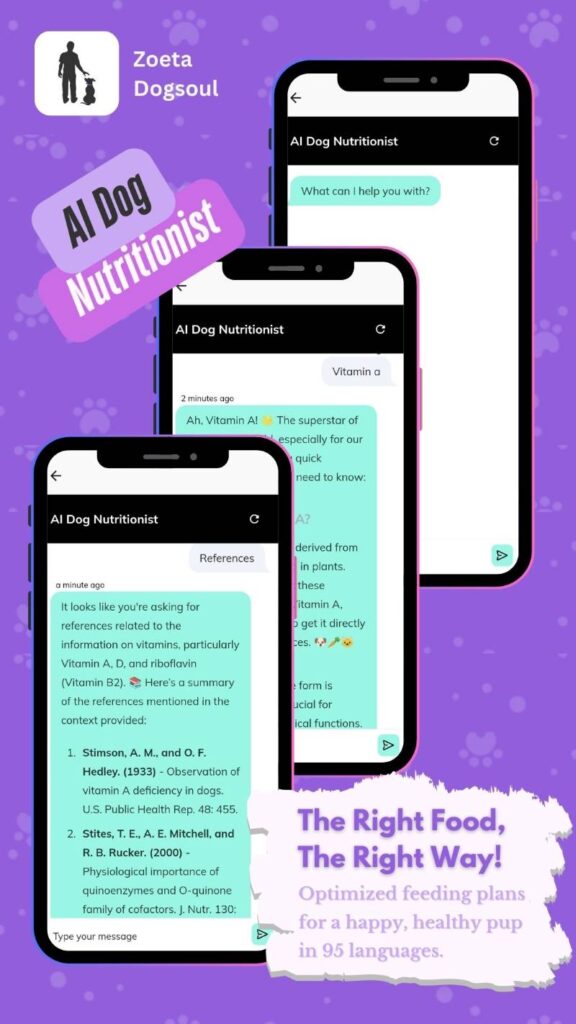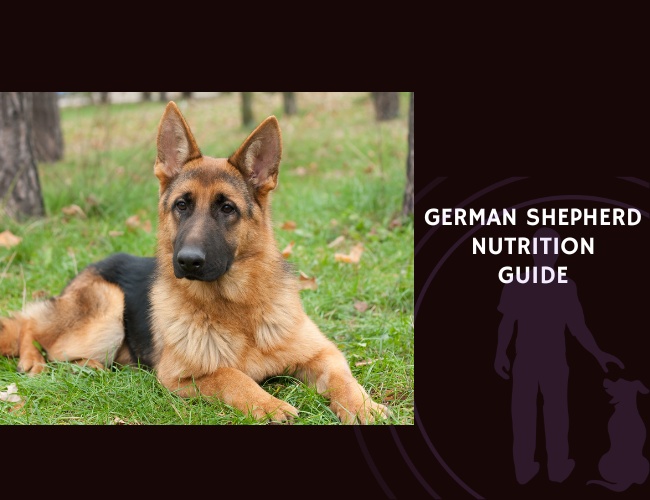The German Shepherd Dog stands as one of the most versatile working breeds, with unique nutritional requirements shaped by their athletic build, active metabolism, and breed-specific health predispositions. Understanding these dietary needs isn’t just about filling a food bowl—it’s about nurturing the remarkable partnership you share with your loyal companion. Let us guide you through the science-based nutritional strategies that will help your German Shepherd thrive throughout every life stage.
Understanding Your German Shepherd’s Unique Metabolism
Did you know that your German Shepherd’s muscular build directly influences how many calories they need each day? These athletic dogs possess a higher lean body mass compared to many other breeds, which translates to an elevated basal metabolic rate during their prime years. This means your furry friend burns energy efficiently, but this efficiency changes with age and activity level.
Temperature’s Hidden Impact on Appetite Your Shepherd’s metabolism responds dynamically to environmental conditions. Both cold winters and hot summers can increase their caloric needs by up to 15-20%. You might notice your dog eating more enthusiastically during temperature extremes—this is their body’s natural way of maintaining energy balance.
The Senior Slowdown As your German Shepherd enters their golden years, their metabolic rate naturally decreases. This shift requires careful dietary adjustments to prevent unwanted weight gain while maintaining muscle mass. It’s a delicate balance that requires your attentive observation and periodic veterinary consultations.
Digestive Characteristics: What Makes GSDs Special
Your German Shepherd’s digestive system, while generally robust, has some unique sensitivities that set them apart from other breeds. Understanding these traits helps you make informed decisions about their daily nutrition.
The Large-Breed Digestive Pattern Research reveals that German Shepherds, like other large breeds, may experience different digestive patterns compared to smaller dogs. Their longer digestive tract means food travels through their system differently, sometimes resulting in:
- Variable stool consistency
- Increased sensitivity to dietary changes
- Different fermentation patterns in the colon
Protein Source Matters More Than You Think Some German Shepherds show particular sensitivity to certain protein sources. While poultry is a common ingredient in many dog foods, some GSDs may produce looser stools when consuming poultry-based diets compared to alternative proteins like wheat gluten or fish. This doesn’t mean poultry is “bad”—it simply means paying attention to how your individual dog responds to different protein sources.
The Bloat Risk: A Critical Consideration Perhaps no digestive concern weighs more heavily on German Shepherd owners’ minds than bloat (gastric dilatation-volvulus). While their stomach capacity is relatively large, this actually increases rather than decreases bloat risk. This life-threatening condition demands proactive prevention through thoughtful feeding practices. 🐾
Macronutrient Requirements: Building Blocks of Health
Protein: The Foundation of Strength
Your German Shepherd’s protein needs change dramatically throughout their life, reflecting their growth patterns and activity levels. Think of protein as the building blocks that construct and maintain your dog’s impressive muscular frame—from the powerful hindquarters that propel them over obstacles to the strong shoulders that help them pull and work tirelessly by your side.
Understanding Protein’s Multifaceted Role Protein does far more than build muscle in your German Shepherd. These complex molecules:
- Support the growth of that lustrous double coat
- Form the structural foundation of every cell
- Create enzymes that drive metabolic processes
- Build antibodies that defend against disease
- Manufacture hormones that regulate body functions
- Repair tissues damaged during work or play
Life Stage Protein Guidelines:
- Puppies (2-12 months): 22-30% protein content supports rapid growth and muscle development
- Adults (1-7 years): 18-22% protein maintains their athletic physique
- Seniors (7+ years): 15-18% protein balances kidney health with muscle preservation
Working Dogs Need More Is your German Shepherd a working dog, competing in schutzhund, or highly active? Their protein needs may exceed standard recommendations by 5-10%. A police K-9 or search-and-rescue dog might thrive on 25-28% protein, even as adults. The key is matching intake to output—your dog’s activity level should guide your protein decisions.
The Quality Question: Not All Proteins Are Equal But here’s what many owners don’t realize: protein quality matters as much as quantity. Highly digestible proteins reduce the workload on your dog’s digestive system and can improve stool quality—particularly important for GSDs with sensitive stomachs.
Biological Value Breakdown Different protein sources offer varying biological values (how efficiently your dog can use them):
- Eggs: 100% biological value—the gold standard
- Fish meal: 92% – excellent digestibility
- Chicken meal: 85% – highly efficient
- Beef: 78% – good quality
- Wheat gluten: 65% – moderate efficiency
- Corn: 45% – lower biological value
Reading Between the Lines: Protein Sources When examining dog food labels, you’ll encounter various protein descriptions:
- “Chicken”: Fresh meat, contains ~75% moisture
- “Chicken meal”: Concentrated, moisture removed, actually provides more protein per pound
- “By-product meal”: Includes organ meats—nutritious but quality varies
- “Meat and bone meal”: Generic source, less desirable
The German Shepherd’s Protein Paradox Your GSD faces a unique challenge: they need sufficient protein to maintain their athletic build, yet some individuals show sensitivity to certain protein sources. This breed-specific trait means you might need to experiment to find the optimal protein source for your dog. Signs your current protein might not be ideal include:
- Chronic soft stools
- Excessive gas
- Dull coat despite good grooming
- Lower energy than expected
- Recurring ear infections
Calculating Your Dog’s Actual Protein Intake Here’s something most owners overlook: the percentage on the bag doesn’t tell the whole story. You need to calculate actual protein intake based on your dog’s food consumption. For example:
- A 70-pound adult GSD eating 4 cups (400g) of food daily
- Food contains 26% protein
- Daily protein intake: 400g × 0.26 = 104g of protein
- This equals approximately 1.5g per pound of body weight—ideal for an active adult
Special Considerations for German Shepherd Athletes Performance dogs require special attention to protein timing:
- Pre-exercise: Moderate protein 3-4 hours before work
- Post-exercise: Higher protein within 2 hours supports recovery
- Rest days: Slightly reduced protein prevents excess storage
The Amino Acid Profile German Shepherds require 10 essential amino acids they cannot produce themselves:
- Arginine (supports immune function)
- Histidine (crucial for growth)
- Isoleucine (muscle metabolism)
- Leucine (protein synthesis)
- Lysine (calcium absorption)
- Methionine (coat health)
- Phenylalanine (pigmentation)
- Threonine (antibody production)
- Tryptophan (serotonin production)
- Valine (muscle coordination)
A complete protein source provides all these amino acids in proper proportions—another reason why protein quality trumps quantity alone.
Fat: More Than Just Energy
Fat plays multiple crucial roles in your Shepherd’s diet beyond simple calorie provision. Adult German Shepherds typically thrive on diets containing 15-20% fat, but the type of fat makes all the difference.
The Omega Balance A proper ratio of omega-3 to omega-6 fatty acids supports:
- Lustrous coat condition
- Reduced inflammation in joints
- Enhanced cognitive function
- Improved immune response
Consider this: GSDs prone to hip dysplasia may particularly benefit from omega-3 supplementation, as these fatty acids help manage inflammation in affected joints.
Carbohydrates: The Misunderstood Nutrient
While dogs don’t have a specific carbohydrate requirement, these nutrients serve important functions in your German Shepherd’s diet. The key lies in choosing the right types.
Complex vs. Simple Carbohydrates Your GSD benefits most from complex carbohydrates that provide steady energy without causing blood sugar spikes. Sources like sweet potatoes, brown rice, and oats offer:
- Sustained energy release
- Dietary fiber for digestive health
- Essential vitamins and minerals
Some German Shepherds may show carbohydrate intolerance, manifesting as gas, loose stools, or skin irritations. If you notice these signs, working with your veterinarian to identify trigger ingredients becomes essential.

Essential Micronutrients: The Supporting Cast
Vitamins: Small but Mighty
Your German Shepherd requires a complete spectrum of vitamins, each playing specific roles:
Key Players in GSD Health:
- Vitamin A: Supports vision and immune function—crucial for working dogs
- Vitamin D: Enables calcium absorption for strong bones
- Vitamin E: Acts as an antioxidant, protecting cells from damage
- B-complex vitamins: Drive energy metabolism and nervous system function
Minerals: Building and Maintaining
The mineral requirements of German Shepherds deserve special attention, particularly during growth phases.
Critical Mineral Partnerships:
- Calcium and Phosphorus: Must maintain a ratio between 1:1 and 2:1 for proper skeletal development
- Zinc: Supports immune function and skin health
- Selenium: Works with Vitamin E as an antioxidant team
Maintaining these mineral balances becomes especially critical during your GSD puppy’s rapid growth phase, where imbalances can lead to developmental orthopedic diseases.
Common Food Sensitivities in German Shepherds
Understanding potential food sensitivities helps you recognize problems early and make informed dietary choices. German Shepherds, with their deep chests and sensitive digestive systems, rank among the breeds most prone to food-related issues. This genetic predisposition doesn’t mean your dog will definitely develop sensitivities, but it does mean staying vigilant pays dividends in their long-term health.
The Science Behind GSD Food Sensitivities
Why German Shepherds Are More Susceptible Your German Shepherd’s predisposition to food sensitivities stems from several factors:
- Genetic intestinal permeability: Some GSDs inherit a more permeable intestinal lining
- Immune system hypervigilance: Their immune systems may overreact to normally harmless proteins
- Rapid growth rate: Fast development can stress the digestive system
- Stress sensitivity: GSDs’ alert nature can manifest as digestive upset
Understanding the Difference: Allergy vs. Intolerance Many owners confuse food allergies with food intolerances—but the distinction matters for treatment:
- Food Allergies: Involve the immune system, can be life-threatening, typically develop over time
- Food Intolerances: Don’t involve immune response, cause discomfort but not dangerous, often immediate
Identifying Food Reactions
German Shepherds may develop sensitivities to various food components, with common culprits including:
- Beef (most common in GSDs)
- Chicken
- Dairy products
- Wheat
- Soy
- Eggs
- Lamb
- Fish (less common but possible)
- Corn
The Timeline of Sensitivity Development Food sensitivities rarely appear overnight. Most German Shepherds develop reactions between 6 months and 3 years of age, though seniors can suddenly develop new sensitivities. The pattern typically follows:
- Initial exposure with no problems
- Repeated exposure over months or years
- Gradual immune system sensitization
- Sudden onset of symptoms
Recognition Signs to Watch For: Your dog might be experiencing food sensitivity if you notice:
Skin Manifestations (most common in GSDs):
- Chronic ear infections (often the first sign)
- Excessive paw licking leading to rust-colored staining
- Hot spots that recur despite treatment
- Patchy hair loss or dull, brittle coat
- Persistent itching without external parasites
- Red, inflamed skin especially in armpits and groin
- Face rubbing after meals
Digestive Symptoms:
- Intermittent vomiting (more than once monthly)
- Chronic soft stools or diarrhea
- Excessive gas and bloating
- Gurgling stomach sounds
- Decreased appetite or eating grass frequently
- Weight loss despite adequate food intake
- Straining during defecation
Behavioral Changes:
- Increased irritability
- Lethargy after meals
- Reluctance to eat certain foods
- Hyperactivity following meals (histamine response)
The Grain Debate
Some German Shepherds exhibit grain sensitivity, particularly to gluten-containing grains. However, it’s important to distinguish between true allergies and digestive intolerance. An elimination diet, conducted under veterinary guidance, remains the gold standard for identifying problem ingredients.
Grains: Not Always the Villain Despite popular belief, only about 10% of food-allergic dogs react to grains. However, German Shepherds show a slightly higher tendency toward grain sensitivity than some breeds. The most problematic grains include:
- Wheat (highest gluten content)
- Barley
- Rye
- Some oats (often contaminated with wheat)
When Grain-Free Isn’t the Answer The grain-free trend has led many GSD owners to automatically eliminate grains. However, recent FDA investigations into grain-free diets and dilated cardiomyopathy (DCM) suggest caution. Consider that:
- Ancient grains like quinoa and amaranth rarely cause issues
- Rice is typically well-tolerated by most GSDs
- The problem might be the protein source, not the grain
The Elimination Diet: Your Diagnostic Tool
Phase 1: The Reset (8-12 weeks) Choose a novel protein and carbohydrate your dog has never eaten:
- Novel proteins: Venison, duck, kangaroo, rabbit
- Novel carbohydrates: Sweet potato, green peas, tapioca
- Feed ONLY these ingredients—no treats, table scraps, or flavored medications
Phase 2: The Challenge After symptoms resolve (usually 6-8 weeks), reintroduce suspected allergens one at a time:
- Add one ingredient every 2 weeks
- Monitor for reaction within 3-14 days
- Document all changes in a food diary
Phase 3: Long-term Management Once triggers are identified:
- Develop a rotation diet to prevent new sensitivities
- Read all labels carefully—allergens hide everywhere
- Inform all family members and dog-sitters
Lesser-Known Triggers in German Shepherds
Environmental Factors That Worsen Food Sensitivities:
- Stress (GSDs are particularly stress-sensitive)
- Seasonal allergies can amplify food reactions
- Medications, especially antibiotics
- Vaccination timing may temporarily increase sensitivity
Hidden Sources of Allergens: Your detective work doesn’t end with the main ingredients:
- Supplements: Fish oil capsules (for fish-allergic dogs)
- Dental chews: Often contain chicken or beef proteins
- Medications: Flavored heartworm preventatives
- Training treats: Even “hypoallergenic” ones may contain triggers
- Cross-contamination: Foods made in facilities processing allergens
Managing Multiple Sensitivities
Many German Shepherds develop sensitivities to multiple ingredients, complicating management:
The Rotation Strategy:
- Rotate between 3-4 different protein sources
- Change every 3-4 months to prevent sensitization
- Keep detailed records of what works
Supporting Gut Health:
- Probiotics specifically formulated for dogs
- Digestive enzymes to improve protein breakdown
- L-glutamine supplements for intestinal healing
- Slippery elm or marshmallow root for soothing
When to Seek Specialist Help
Consider consulting a veterinary dermatologist or nutritionist if:
- Symptoms persist despite elimination diet
- Your dog reacts to most protein sources
- Secondary infections keep recurring
- Quality of life is significantly impacted
- You’re considering raw or home-cooked diets
Living with a Food-Sensitive German Shepherd
Creating a Safe Environment:
- Establish strict household rules about feeding
- Keep an “approved foods” list posted
- Train your GSD to “leave it” reliably
- Consider a medical alert tag for severe allergies
Social Situations:
- Bring your own treats to training classes
- Educate friends about not feeding your dog
- Have a polite script ready for well-meaning strangers
- Pack safe meals when traveling
Remember, managing food sensitivities in your German Shepherd isn’t about restriction—it’s about finding what helps them thrive. Many dogs with properly managed sensitivities live completely normal, active lives. The key is patience during the diagnostic phase and vigilance in the management phase. 🐾
Power. Focus. Fuel.
Athleticism demands precision.
Your German Shepherd isn’t a couch companion by default—they’re built for action. Their powerful frame, sensitive digestion, and intense drive require more than generic dog food. They need fuel that respects their genetics, supports their joints, and powers their purpose.
Sensitivity isn’t weakness—it’s data.
Loose stools, itchiness, or picky eating aren’t quirks. They’re clues. Many German Shepherds react to common proteins or grains, and ignoring those signs risks more than discomfort—it risks long-term dysfunction. Behaviour, performance, health—all of it starts in the gut.



Nutrition sculpts potential.
Whether your Shepherd is on patrol, in sport, or guarding your soul, their food builds their future. Get it right, and you unlock focus, strength, and vitality. Get it wrong, and you’ll see it—in their joints, their coat, their mood. Make every bowl count.
Life Stage Nutrition: Adapting to Changing Needs
Puppy Power: Fueling Growth
Your German Shepherd puppy experiences explosive growth, nearly doubling in size every few months during their first year. This rapid development demands precise nutrition.
Growth Phase Priorities:
- Higher caloric density to support energy needs
- Controlled calcium levels to prevent skeletal problems
- DHA for brain and vision development
- Multiple small meals to support steady growth
Adult Maintenance: Prime Years
Adult German Shepherds need balanced nutrition that supports their active lifestyle while preventing obesity. This stage focuses on:
- Maintaining ideal body condition
- Supporting joint health proactively
- Providing consistent energy for work or play
Senior Support: Golden Years Nutrition
As your German Shepherd ages, their nutritional needs shift significantly. Senior nutrition strategies include:
Targeted Senior Adjustments:
- Reduced phosphorus to support kidney function
- Added glucosamine and chondroitin for joint support
- Increased antioxidants for cognitive health
- Enhanced fiber for digestive regularity
- Omega-3 fatty acids for anti-inflammatory benefits
Reproductive Nutrition
Pregnant and nursing German Shepherds require dramatic dietary adjustments:
- 25-50% increase in caloric intake during late pregnancy
- Up to 3x maintenance calories during peak lactation
- Higher protein and fat percentages
- Increased calcium and phosphorus for milk production
Managing Breed-Specific Health Risks Through Nutrition
Every German Shepherd owner eventually faces the sobering reality that their beloved breed carries genetic predispositions to certain health conditions. But here’s the empowering truth: while you cannot change your dog’s genetics, you hold remarkable power through the food bowl. Strategic nutrition won’t cure inherited conditions, but it can dramatically influence their onset, progression, and impact on your dog’s quality of life.
Think of nutrition as your first line of defense—a daily opportunity to support your German Shepherd’s vulnerable systems. From the haunting specter of hip dysplasia that shadows large breeds to the acute danger of bloat that can strike without warning, each meal becomes an act of prevention. The fascinating intersection between genetics and nutrition reveals that what you feed your GSD today shapes their health tomorrow.
You might wonder: can something as simple as choosing the right food really make a difference against conditions written into your dog’s DNA? Research increasingly shows that yes, it absolutely can. Whether you’re nurturing a bouncing puppy you hope to protect or supporting a senior dog already facing challenges, understanding these nutritional strategies transforms you from worried owner to empowered advocate for your German Shepherd’s health.
Hip Dysplasia: A Nutritional Approach
While genetics play the primary role in hip dysplasia, nutrition significantly influences its severity and progression.
Preventive Strategies:
- Maintain lean body condition throughout life
- Avoid overfeeding during puppyhood
- Ensure proper calcium-phosphorus ratios
- Consider joint-supporting supplements early
Bloat Prevention: Every Meal Matters
Implementing anti-bloat feeding strategies can literally save your German Shepherd’s life:
Essential Bloat Prevention Tactics:
- Feed 2-3 smaller meals rather than one large meal
- Use elevated feeders with caution (research is mixed)
- Employ slow-feeder bowls to reduce eating speed
- Avoid exercise for 1 hour before and after meals
- Consider adding probiotics to support digestive health
Pancreatitis: The Hidden Threat
German Shepherds can develop pancreatitis, often triggered by high-fat foods or dietary indiscretion.
Prevention Through Diet:
- Maintain consistent fat levels (avoid sudden high-fat treats)
- Choose easily digestible proteins
- Avoid table scraps, especially fatty foods
- Monitor body weight carefully
Dilated Cardiomyopathy (DCM) Considerations
Recent research has highlighted potential links between certain diets and DCM in dogs. For German Shepherds:
- Ensure adequate taurine levels in the diet
- Be cautious with grain-free diets high in legumes
- Consider periodic taurine testing if feeding non-traditional diets

Choosing the Right Feeding Method
Commercial Kibble: The Convenient Choice
High-quality commercial diets offer complete nutrition with convenience. When selecting kibble for your GSD:
Quality Indicators:
- Named protein sources as first ingredients
- Appropriate protein and fat levels for life stage
- AAFCO certification
- Minimal fillers and by-products
Raw Feeding: Back to Nature?
Some German Shepherd owners choose raw diets, citing improved coat condition and smaller, firmer stools.
Raw Feeding Considerations:
- Requires careful planning to ensure nutritional balance
- Demands strict hygiene protocols
- May provide highly digestible nutrients
- Consult with a veterinary nutritionist for formulation
Home-Cooked Diets: The Personal Touch
Preparing your German Shepherd’s meals at home offers ultimate control but requires dedication:
- Must include all essential nutrients
- Requires regular recipe adjustments
- Benefits from veterinary nutritionist consultation
- Allows for precise ingredient selection for sensitive dogs
Practical Feeding Guidelines for German Shepherd Owners
Creating the Ideal Feeding Environment
Your German Shepherd’s eating habits and environment significantly impact their digestive health and overall well-being.
Mealtime Management Strategies:
- Establish consistent feeding times
- Create a calm, quiet feeding space
- Separate multi-dog households during meals
- Monitor eating speed and adjust accordingly
Slow-Feeder Solutions
Given the bloat risk and tendency toward fast eating, slow-feeder bowls become essential tools:
- Puzzle feeders engage their problem-solving skills
- Lick mats can slow consumption of wet foods
- Snuffle mats combine feeding with mental stimulation
Transitioning Foods Successfully
German Shepherds’ sensitive digestive systems require gradual food transitions:
The 7-10 Day Rule:
- Days 1-2: 75% old food, 25% new food
- Days 3-4: 50% old food, 50% new food
- Days 5-6: 25% old food, 75% new food
- Days 7+: 100% new food
Monitor stool quality throughout the transition, slowing the process if digestive upset occurs.
Managing the Picky Eater
Some German Shepherds become selective about their food, requiring creative solutions:
- Rotate between 2-3 high-quality foods
- Add warm water or low-sodium broth
- Use food-dispensing toys to make meals engaging
- Rule out underlying health issues with veterinary consultation
Supplement Strategies for German Shepherds
Core Supplements to Consider
While a balanced diet provides most nutrients, certain supplements offer targeted benefits:
Joint Support Arsenal:
- Glucosamine and chondroitin for cartilage health
- MSM for anti-inflammatory effects
- Green-lipped mussel for natural joint support
Digestive Health Boosters:
- Probiotics for gut microbiome balance
- Digestive enzymes for sensitive stomachs
- Prebiotics to feed beneficial bacteria
Cognitive and Immune Support:
- Omega-3 fatty acids (EPA and DHA)
- Antioxidant blends for senior dogs
- SAM-e for cognitive function in aging GSDs
Supplement Safety Considerations
Not all supplements are created equal, and more isn’t always better:
- Choose products with third-party testing
- Avoid over-supplementation, which can cause imbalances
- Coordinate all supplements with your veterinarian
- Monitor for any adverse reactions
Monitoring Nutritional Success
Body Condition Scoring
Regular body condition assessment helps you fine-tune your German Shepherd’s diet:
The Hands-On Approach:
- Ribs should be easily felt but not visible
- Waist visible from above
- Abdominal tuck apparent from the side
- Adjust portions based on these observations
Key Health Indicators
Your German Shepherd’s overall health reflects their nutritional status:
- Bright, clear eyes
- Shiny, full coat
- Consistent, firm stools
- Steady energy levels
- Healthy weight maintenance
Regular veterinary check-ups, including bloodwork, provide objective measures of nutritional adequacy.
Conclusion: Your German Shepherd’s Nutritional Journey
Providing optimal nutrition for your German Shepherd represents one of the most impactful ways you can support their health, longevity, and quality of life. From their rapid puppy growth through their distinguished senior years, each life stage brings unique nutritional challenges and opportunities.
Remember, while these guidelines provide a science-based foundation, every German Shepherd is an individual. What works perfectly for one dog may need adjustment for another. Stay observant, work closely with your veterinary team, and be willing to adapt as your dog’s needs evolve.
Your German Shepherd gives you unwavering loyalty, protection, and companionship. In return, thoughtful nutrition choices help ensure they remain by your side—healthy, happy, and ready for whatever adventures you share together. Whether they’re working alongside law enforcement, competing in schutzhund, or simply being your devoted family companion, proper nutrition fuels their remarkable capabilities.
Is your German Shepherd getting the nutrition they deserve? Take time today to evaluate their current diet against these guidelines, and don’t hesitate to consult with your veterinarian about optimizing their nutritional plan. Your faithful friend depends on you to make the best choices for their health—and with this knowledge, you’re well-equipped to do exactly that. 🧡










